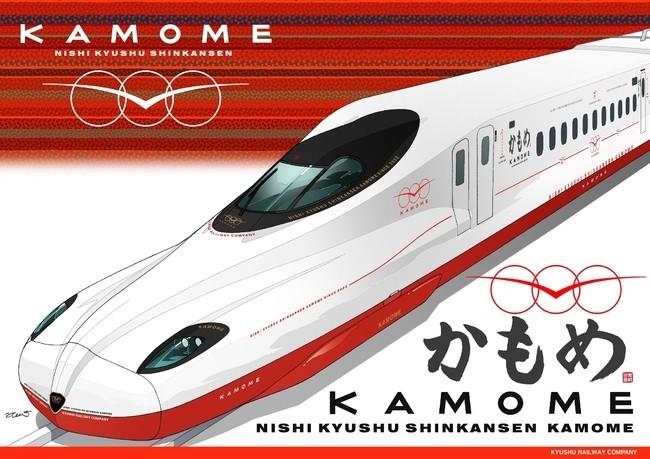New shinkansen design revealed for Nagasaki extension

For many years, Japan’s high-speed shinkansen rail system could only take you as far from Tokyo as Fukuoka, on Japan’s southwest island of Kyushu. The line eventually got extended to south to Kagoshima, but people traveling to or from western Kyushu, including Nagasaki, still have no bullet train service in the region.
That’s going to change soon, though, and with an eye towards the future rail operator JR Kyushu has unveiled the visual design of its new Shinkansen trains that will be running on the upcoming West Kyushu Route next year.
Utilizing KR Kyushu’s bright red image color on its exterior, the train will be called Kamome, which translates as “Seagull,” with its stylized emblem evocative of a bird in flight and brush calligraphy logo carrying a similar feeling of freedom in motion.
The six passenger cars that make up the train have room for 396 travelers, with a total of 163 reserved seats in Cars 1, 2, and 3. Seats in Car 1 have an auspicious chrysanthemum design on their upholstery.
For many years, Japan’s high-speed shinkansen rail system could only take you as far from Tokyo as Fukuoka, on Japan’s southwest island of Kyushu. The line eventually got extended to south to Kagoshima, but people traveling to or from western Kyushu, including Nagasaki, still have no bullet train service in the region.
That’s going to change soon, though, and with an eye towards the future rail operator JR Kyushu has unveiled the visual design of its new Shinkansen trains that will be running on the upcoming West Kyushu Route next year.
Utilizing KR Kyushu’s bright red image color on its exterior, the train will be called Kamome, which translates as “Seagull,” with its stylized emblem evocative of a bird in flight and brush calligraphy logo carrying a similar feeling of freedom in motion.
The six passenger cars that make up the train have room for 396 travelers, with a total of 163 reserved seats in Cars 1, 2, and 3. Seats in Car 1 have an auspicious chrysanthemum design on their upholstery.
Source: japantoday.com
